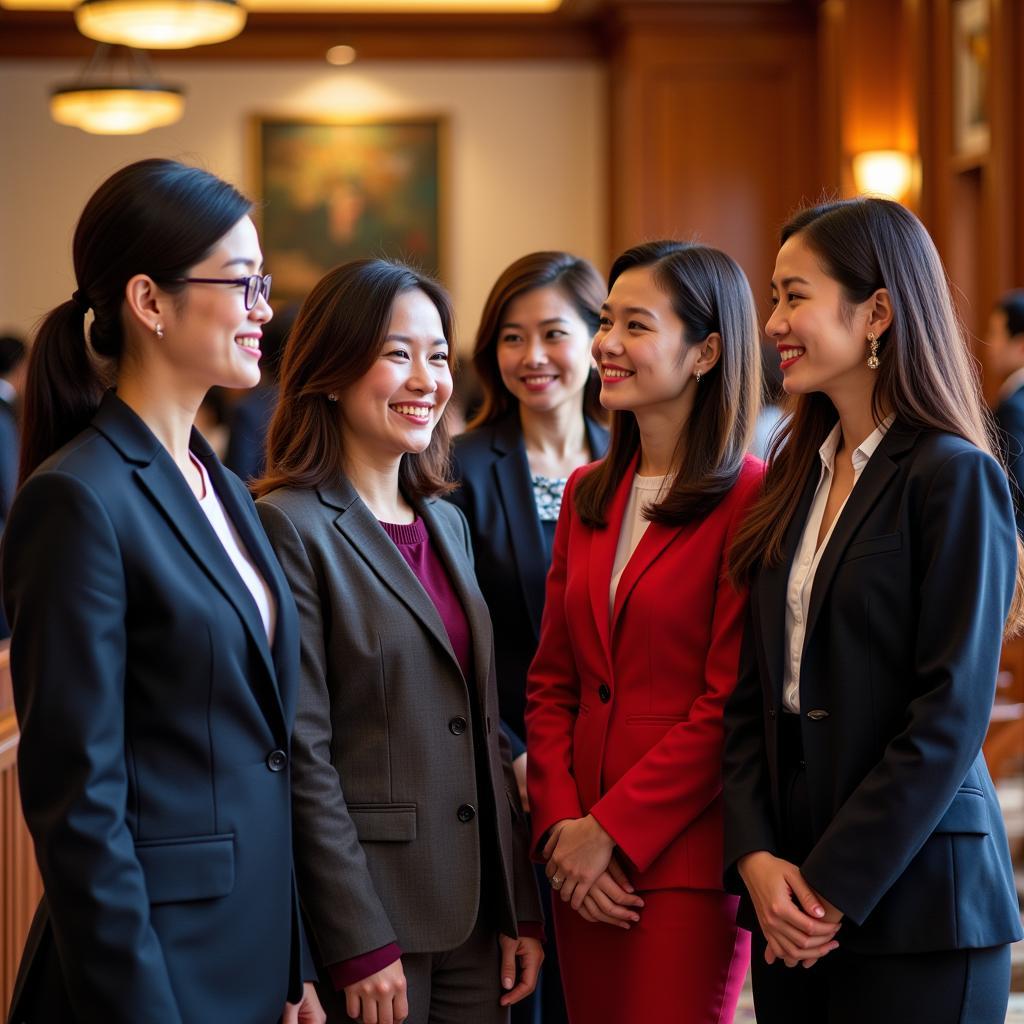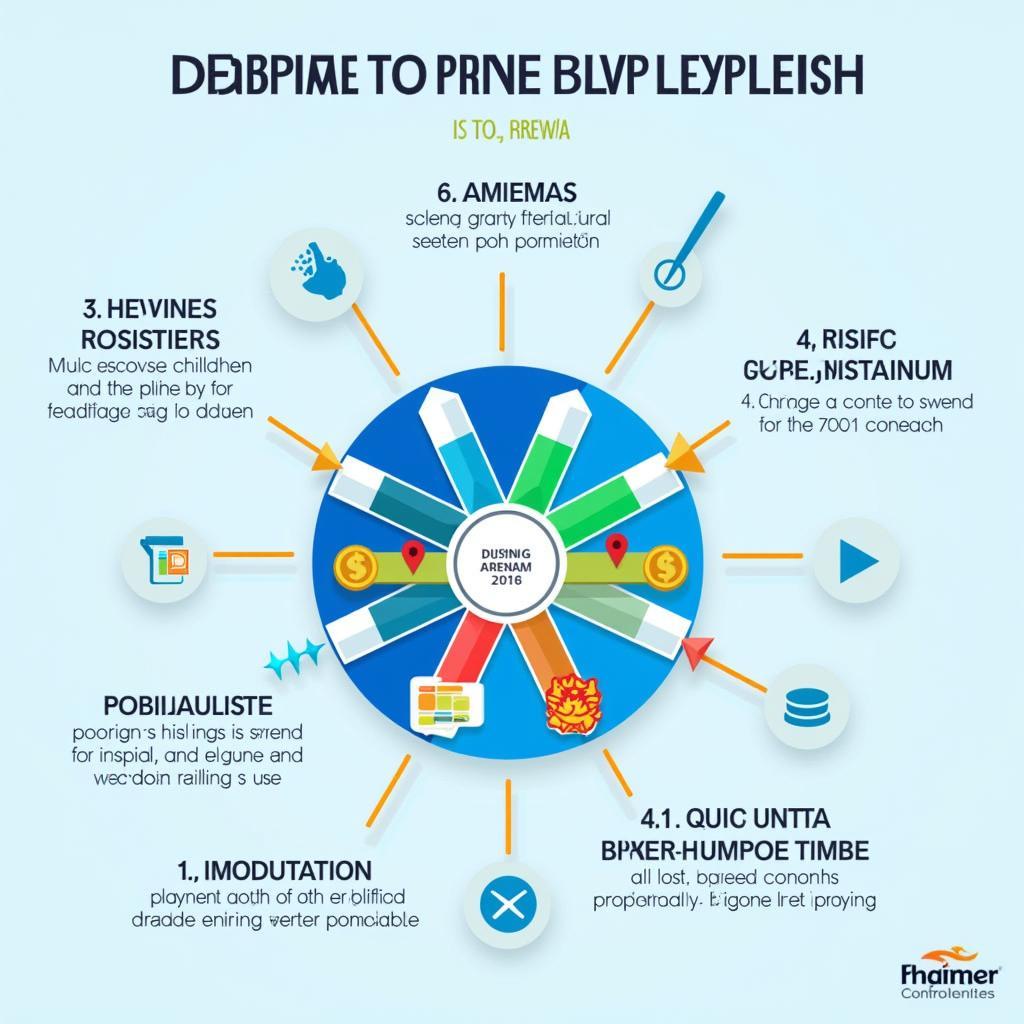The Association of Southeast Asian Nations (ASEAN) and UN Women have forged a strong partnership to advance gender equality and women’s empowerment in the region. Recognizing that women and girls are essential drivers of sustainable development, this collaboration focuses on creating inclusive societies where everyone can reach their full potential.
A Shared Vision for Gender Equality
The Asean And Un Women partnership is built upon a shared commitment to the principles of equality, non-discrimination, and human rights for all. Both organizations acknowledge that empowering women and girls is not only morally right but also crucial for achieving economic growth, social progress, and peace and security in Southeast Asia.
Key Areas of Collaboration
The ASEAN and UN Women collaboration spans a wide range of areas, including:
-
Ending Violence Against Women: Together, they work to eliminate all forms of violence against women and girls, promoting legal reforms, strengthening support services for survivors, and addressing the root causes of gender-based violence.
-
Women’s Economic Empowerment: Recognizing the economic contributions of women, ASEAN and UN Women promote women’s entrepreneurship, access to decent work, and financial inclusion. They support programs that provide skills training, business development support, and access to markets for women entrepreneurs.
-
Women’s Political Participation: Increasing women’s participation in decision-making at all levels is a key focus. The partnership supports initiatives that promote women’s leadership, enhance their political capacities, and encourage their representation in government and political processes.
 ASEAN Women Parliamentarians
ASEAN Women Parliamentarians
- Gender-Responsive Governance: ASEAN and UN Women work to integrate gender perspectives into national policies, plans, and budgets. This involves building the capacity of government officials to develop and implement gender-responsive policies and programs.
Impact and Success Stories
The ASEAN and UN Women partnership has yielded tangible results across Southeast Asia. Some notable achievements include:
- The development of regional action plans on the elimination of violence against women and the promotion of women’s economic empowerment.
- The establishment of regional mechanisms for monitoring progress on gender equality commitments.
- The implementation of programs that have empowered thousands of women economically and politically.
Challenges and Opportunities
Despite progress, significant challenges remain in achieving full gender equality in ASEAN. Persistent gender stereotypes, discriminatory social norms, and limited access to education, healthcare, and economic opportunities continue to hinder women’s advancement.
To address these challenges, the ASEAN and UN Women partnership is focusing on:
- Strengthening collaboration with civil society organizations and the private sector to leverage their expertise and resources.
- Promoting gender-sensitive data collection and analysis to inform policymaking.
- Engaging men and boys as partners in promoting gender equality.
A Future of Empowerment
The ASEAN and UN Women partnership is committed to creating a more just and equitable future for all in Southeast Asia. By working together, they aim to empower women and girls to fully participate in and contribute to their societies, leading to a more prosperous and sustainable region for everyone.
FAQs
What is the role of UN Women in ASEAN?
UN Women works closely with ASEAN to promote gender equality and women’s empowerment in the region. This includes supporting policy development, capacity building, knowledge sharing, and advocacy efforts.
How does the ASEAN and UN Women partnership benefit women in Southeast Asia?
The partnership brings together the collective resources and expertise of both organizations to address the multifaceted challenges faced by women in the region. This leads to concrete actions and programs that promote women’s rights, empower them economically and politically, and create a more enabling environment for their advancement.
What are some of the key challenges to achieving gender equality in ASEAN?
Despite progress, significant challenges remain, including deeply rooted gender stereotypes, discriminatory social norms, limited access to education and healthcare, and unequal economic opportunities. Addressing these challenges requires sustained efforts to change mindsets, promote inclusive policies, and empower women with the necessary skills and resources to reach their full potential.
Need Support?
Contact us at:
Phone Number: 0369020373
Email: [email protected]
Address: Thôn Ngọc Liễn, Hiệp Hòa, Bắc Giang, Việt Nam
We have a 24/7 customer support team. You can also find more information on our website, including resources on ASEA convention 2019 agenda, ASE AMMSN, and ASEA water UK.
We encourage you to explore our other articles on related topics such as ASE chick days and Apa itu ASEAN ACTS for further insights.

